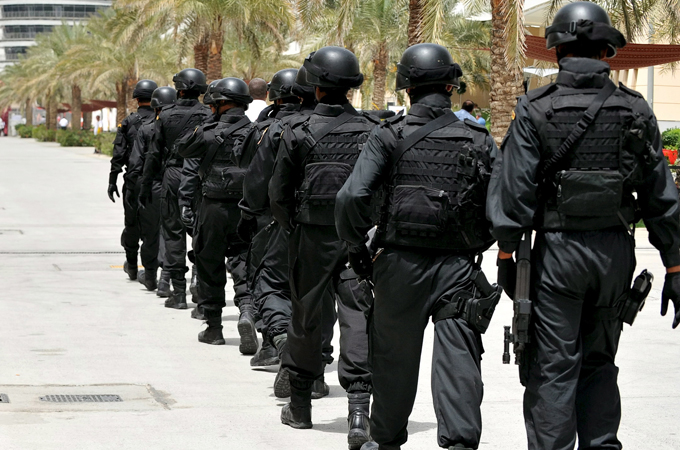On 16 September 2016, Yusuf Al-Hoori, on behalf of Americans for Democracy & Human Rights in Bahrain, delivered an oral intervention at the 33rd session of the Human Rights Council under item 3 on Bahrain’s use of mercenaries during time of civil unrest.
Please continue reading for full remarks or click here to download a PDF.
To the members of the Working group on the use of mercenaries,
Americans for Democracy & Human Rights in Bahrain, together with the Bahrain Institute for Rights and Democracy would like to thank the Working Group for its communications following the mandate on the use of mercenaries as means of violating human rights.
When the Bahraini uprising began in 2011, the Bahraini government began enlisting as many as 2500 Pakistani servicemen to help violently suppress the pro-democracy protests. They paid the foreign recruits the equivalent of approximately 1500 USD to target Shia-majority communities with tear gas, rubber bullets, and other crowd control weapons. They have also damaged civilian property, houses, and mosques.
The narrow definition of a mercenary, as provided by the Geneva Conventions, has made it easy for Bahrain to deny their recruitment of mercenaries. The majority of these non-Bahraini recruits are granted citizenship, so state officials can technically claim that Bahraini citizens comprise the security forces.
These recruits mainly come from Pakistan, although there are also mercenaries from Sudan, Malaysia, Indonesia, UAE and other countries as well. They often live in isolated in communities and do not receive guidance to learn Arabic or local customs. It has also been reported that the votes of these newly naturalized citizens were also used to effectively marginalize members of the opposition in parliamentary elections. These circumstances have increased confrontations and escalated violence in Bahrain.
We would like to ask the working group: What steps can be taken to ensure that member states, like Bahrain, no longer continue abuse legal loopholes to deploy mercenaries during periods of civil unrest?
Thank you.





